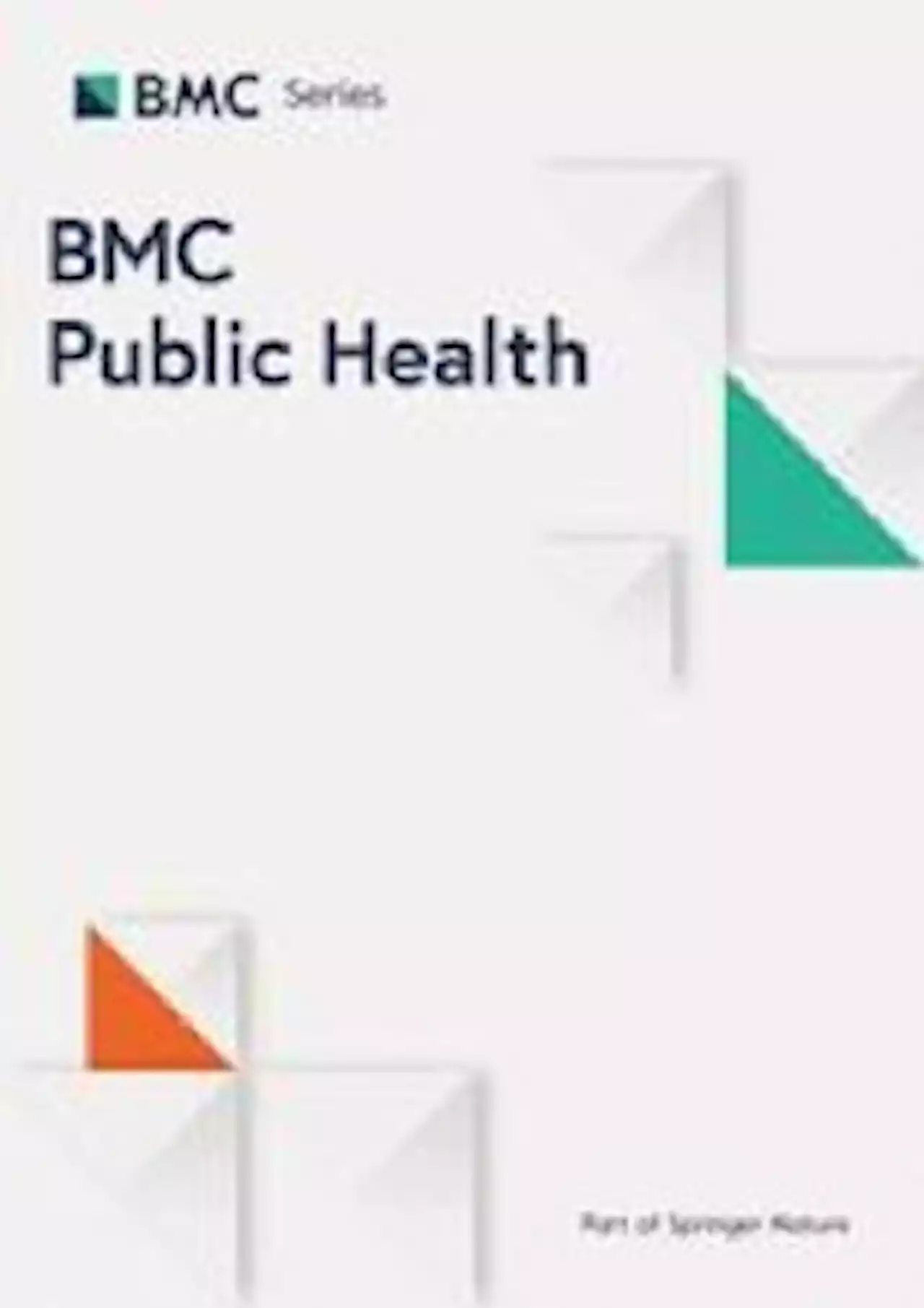Heart attacks are becoming increasingly more common in women under 50 and medical experts can't figure out why
Heart attacks are becoming increasingly more common in women under 50 and medical experts can't figure out why.
But experts argue that if a woman mentions chest pain, then a heart attack must be deemed a possibility until ruled out, says a new study. And any preconceived ideas on female heart problems have been challenged in new findings presented at the European Society of Cardiology Congress. Analysing their symptoms revealed that 91.6 percent of the women experienced typical chest pain, with 59.7 per cent having related symptoms.
United Kingdom Latest News, United Kingdom Headlines
Similar News:You can also read news stories similar to this one that we have collected from other news sources.
 Health behaviours the month prior to COVID-19 infection and the development of self-reported long COVID and specific long COVID symptoms: a longitudinal analysis of 1581 UK adults - BMC Public HealthBackground Demographic and infection-related characteristics have been identified as risk factors for long COVID, but research on the influence of health behaviours (e.g., exercise, smoking) immediately preceding the index infection is lacking. The aim of this study was to examine whether specific health behaviours in the month preceding infection with COVID-19 act as upstream risk factors for long COVID as well as well as three specific long COVID symptoms. Methods One thousand five hundred eighty-one UK adults from the UCL COVID-19 Social Study and who had previously been infected with COVID-19 were analysed. Health behaviours in the month before infection were weekly exercise frequency, days of fresh air per week, sleep quality, smoking, consuming more than the number of recommended alcoholic drinks per week (| 14), and the number of mental health care behaviours (e.g., online mental health programme). Logistic regressions controlling for covariates (e.g., COVID-19 infection severity, socio-demographics, and pre-existing health conditions) examined the impact of health behaviours on long COVID and three long COVID symptoms (difficulty with mobility, cognition, and self-care). Results In the month before infection with COVID-19, poor quality sleep increased the odds of long COVID (odds ratio [OR]: 3.53; (95% confidence interval [CI]: 2.01 to 6.21), as did average quality sleep (OR: 2.44; 95% CI: 1.44 to 4.12). Having smoked (OR: 8.39; 95% CI: 1.86 to 37.91) increased and meeting recommended weekly physical activity guidelines (3h hours) (OR: 0.05; 95% CI: 0.01 to 0.39) reduced the likelihood of difficulty with self-care (e.g., washing all over or dressing) amongst those with long COVID. Conclusions Results point to the importance of sleep quality for long COVID, potentially helping to explain previously demonstrated links between stress and long COVID. Results also suggest that exercise and smoking may be modifiable risk factors for preventing the development of d
Health behaviours the month prior to COVID-19 infection and the development of self-reported long COVID and specific long COVID symptoms: a longitudinal analysis of 1581 UK adults - BMC Public HealthBackground Demographic and infection-related characteristics have been identified as risk factors for long COVID, but research on the influence of health behaviours (e.g., exercise, smoking) immediately preceding the index infection is lacking. The aim of this study was to examine whether specific health behaviours in the month preceding infection with COVID-19 act as upstream risk factors for long COVID as well as well as three specific long COVID symptoms. Methods One thousand five hundred eighty-one UK adults from the UCL COVID-19 Social Study and who had previously been infected with COVID-19 were analysed. Health behaviours in the month before infection were weekly exercise frequency, days of fresh air per week, sleep quality, smoking, consuming more than the number of recommended alcoholic drinks per week (| 14), and the number of mental health care behaviours (e.g., online mental health programme). Logistic regressions controlling for covariates (e.g., COVID-19 infection severity, socio-demographics, and pre-existing health conditions) examined the impact of health behaviours on long COVID and three long COVID symptoms (difficulty with mobility, cognition, and self-care). Results In the month before infection with COVID-19, poor quality sleep increased the odds of long COVID (odds ratio [OR]: 3.53; (95% confidence interval [CI]: 2.01 to 6.21), as did average quality sleep (OR: 2.44; 95% CI: 1.44 to 4.12). Having smoked (OR: 8.39; 95% CI: 1.86 to 37.91) increased and meeting recommended weekly physical activity guidelines (3h hours) (OR: 0.05; 95% CI: 0.01 to 0.39) reduced the likelihood of difficulty with self-care (e.g., washing all over or dressing) amongst those with long COVID. Conclusions Results point to the importance of sleep quality for long COVID, potentially helping to explain previously demonstrated links between stress and long COVID. Results also suggest that exercise and smoking may be modifiable risk factors for preventing the development of d
Read more »
 Plans to build multi-million-pound health hub on derelict land in GlasgowPLANS to bring a multi-million-pound ‘Health Innovation Hub’ to Govan have been praised by the local community.
Plans to build multi-million-pound health hub on derelict land in GlasgowPLANS to bring a multi-million-pound ‘Health Innovation Hub’ to Govan have been praised by the local community.
Read more »
 How do sweeteners and sugars affect your gut health?New research shows that sweeteners have a negative impact on your microbiome. But is sugar worse for your gut?
How do sweeteners and sugars affect your gut health?New research shows that sweeteners have a negative impact on your microbiome. But is sugar worse for your gut?
Read more »
 Study examines current state regulations, public health risks of growing medicinal and recreational marijuana marketA new study urges that state and federal regulators need to take a closer look at health and safety risks of the growing medicinal and recreational cannabis market.
Study examines current state regulations, public health risks of growing medicinal and recreational marijuana marketA new study urges that state and federal regulators need to take a closer look at health and safety risks of the growing medicinal and recreational cannabis market.
Read more »
 Fulham issue warning to Newcastle United fans - Should be a health warning!Wednesday has seen Fulham issue a warning (should be a health warning!) to Newcastle United fans.
Fulham issue warning to Newcastle United fans - Should be a health warning!Wednesday has seen Fulham issue a warning (should be a health warning!) to Newcastle United fans.
Read more »
